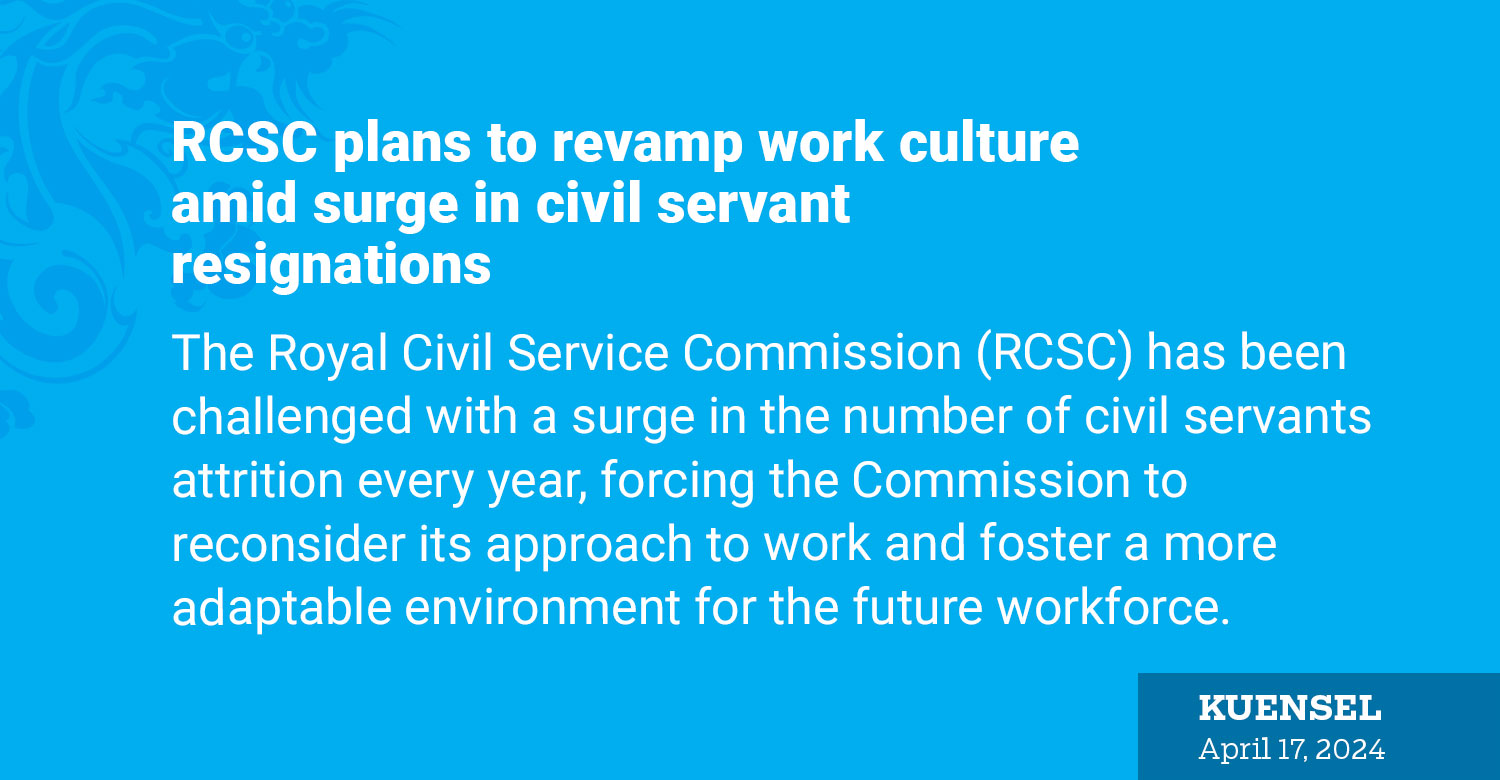…term of the third Commission ended yesterday
KP Sharma
The Royal Civil Service Commission (RCSC) has been challenged with a surge in the number of civil servants attrition every year, forcing the Commission to reconsider its approach to work and foster a more adaptable environment for the future workforce.
A total of 5,202 civil servants exited the civil service in 2023, marking a sharp increase compared to 2,646 in 2022 and 1,504 in 2021. Among these resignations, the highest number over the past three years were voluntary resignations.
The spike in voluntary resignations highlights either the civil service’s inability to cultivate a supportive work environment or its failure to attract and retain employees, revealing its inadequacy in adapting to the evolving times and meeting employees’ needs.
Civil servants often criticise the civil service’s approach to work as outdated and unsuitable for the present era due to its inflexibility.
They allege the leaders as incompetent and lacking critical leadership skills, creating an unconducive environment, especially for younger civil servants.
Acknowledging these concerns as valid, the RCSC outlined its plans for addressing them in its annual report from 2019 to 2024.
The Commission proposed a way forward to make the civil service more appealing to the younger generation.
According to the report, the rapidly evolving job market is driving a significant transformation in traditional work models.
It suggests that the rigid nine-to-five schedules and linear career progression solely based on seniority are becoming obsolete over time.
The report stated that the new emerging world revolves around cognitive skills such as creativity, critical thinking and digital literacy, indicating that civil servants must acquire these skills to remain competent in service.
“Employees will have to apply creativity, critical thinking, and constant digital upskilling to solve complex problems. The digital economy demands new ideas, information and business models that continually expand, combine and shift into new ventures,” the report stated.
Such changes in the working pattern are paving the way for alternative working arrangements like part-time schedules, flexible hours, remote work, job-sharing, and condensed workweeks to become increasingly popular.
The report also highlighted that organisations are adapting to these changes by redefining roles and adjusting human resource processes to appeal to and retain top talent from the younger generation.
RCSC stated that it is prioritising the development of a work culture that encourages entrepreneurship, risk-taking and innovation.
Further, it aims to promote adaptability and agility within bureaucratic structures by reshaping the attitudes, values, and practices of individuals and groups within organizations.
One immediate area where the commission will invest is in leadership development and empowering change agents. These individuals will drive cross-functional collaboration and utilize technology to implement behavoural change initiatives.
The report mentioned transformational leadership as important pillar to these changes.
Leaders in future are expected to lead by example, embodying the desired change and fostering a culture of continuous learning and improvement across all levels of the organisation.
Another area where the RCSC has faced challenges is in its decision-making processes, which often involve only a few leaders and exclude employee participation on the board.
Civil servants stress the need for the RCSC to establish an environment where every employee feels empowered to contribute their ideas and advocate for positive change.


